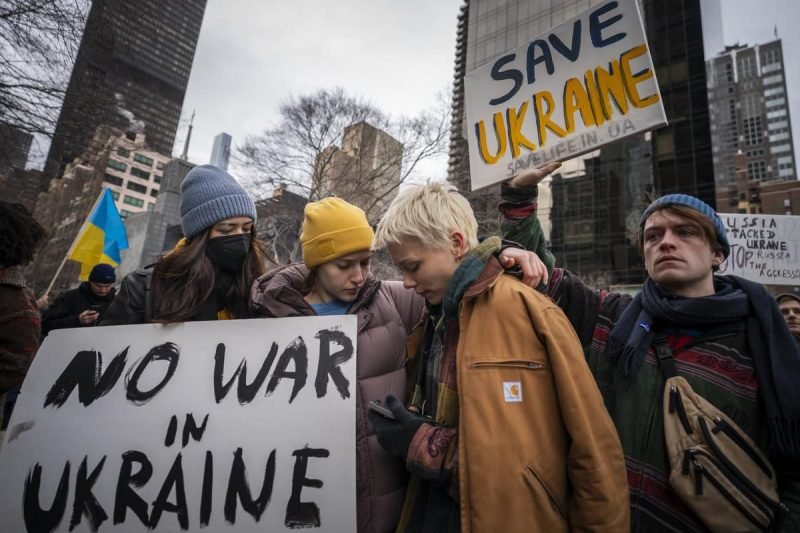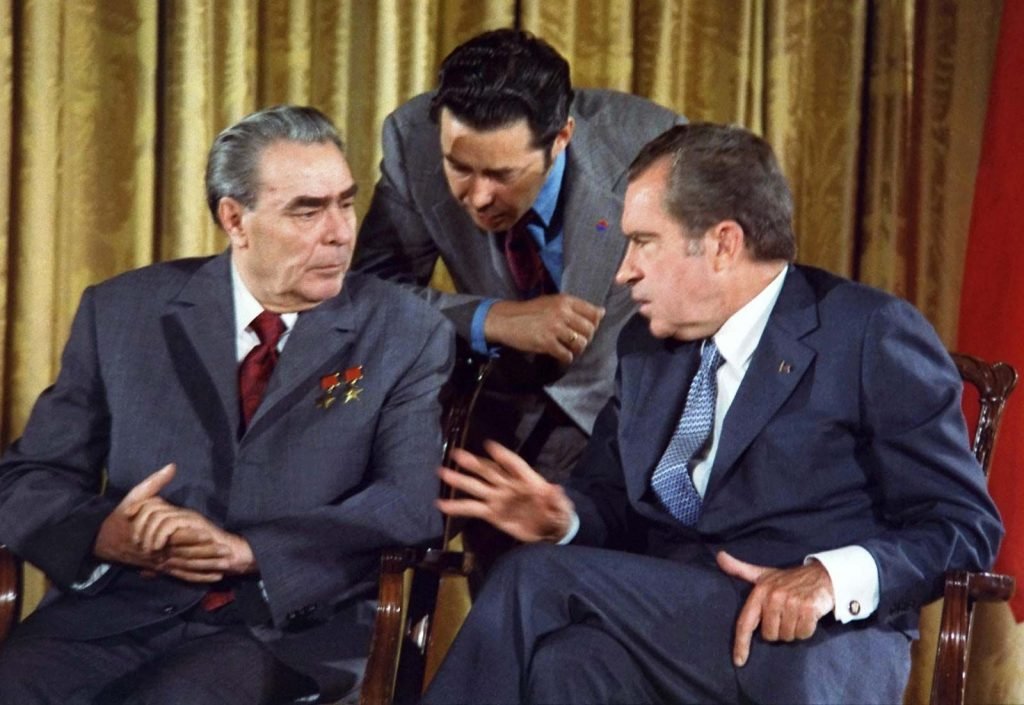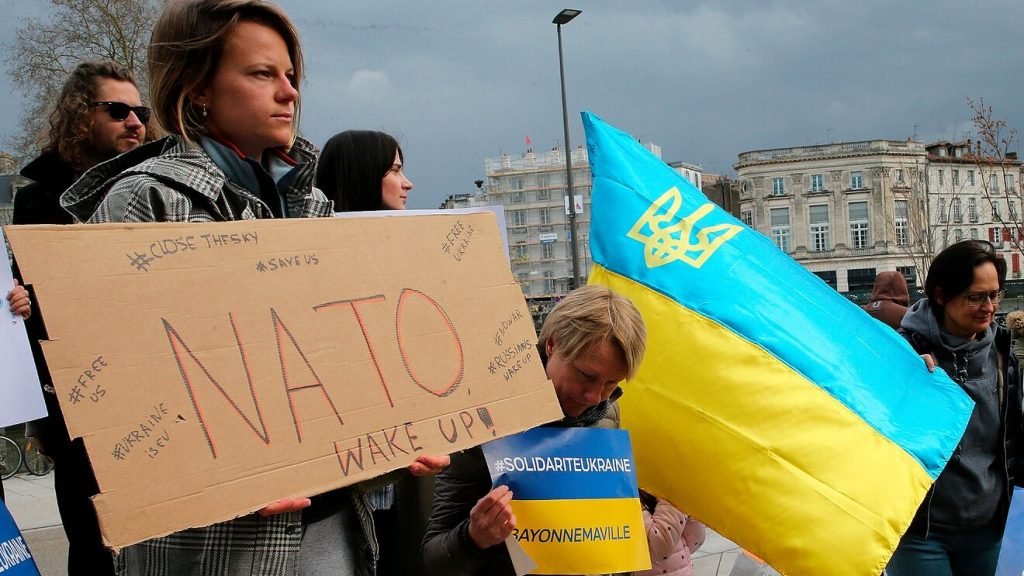Saving Democracy from Russian Rage

Professor Larry Diamond’s book, Ill Winds, though published two years ago, offers many great insights for understanding the “Russian rage” behind the tragic war in Ukraine.
Much is being written about Russia’s invasion of Ukraine, and much more will surely be written in the months and years ahead of this potentially epoch-defining event. But some of the most insightful, and almost prescient, analyses were made well before the conflict, such as in Larry Diamond’s excellent book, Ill Winds: Saving Democracy from Russian rage, Chinese ambition, and American complacency.
Diamond, a professor at Stanford University, has spent his whole professional life studying and promoting democracy. And in this book, he offers “a broader readership” a sweeping history of modern democracy. He documents the political transformation of the world by the “third wave of democratisation”. This began gradually in the 1970s and 80s, and was followed by a big bang after the fall of the Berlin wall, with the democratisation of central and eastern Europe.
Diamond does draw a distinction between mere electoral democracies, and liberal, high-quality democracies which rest on three legs – majority rule, minority rights and good governance including the rule of law. The third wave peaked in 2006, where there was a decisive majority of world states (nearly 3 in 5) which were electoral democracies, while 34 percent were liberal democracies.
But then followed the beginning of the global democratic recession, with the rise in democratic breakdowns, especially among electoral democracies with weak institutions. Badly governed, poorly performing democracies are indeed accidents waiting to happen. It may be difficult to remember but there were hopes back in the 1990s that a nascent Russian democracy might mature under the leadership of Boris Yeltsin. But the country’s politics were then hijacked by Vladimir Putin, who killed the nascent democracy.
One factor driving the weakening of democracy is the rise of illiberal populists who make extraordinary claims about the need for them to concentrate power to save the country. In this way, Putin led the world slide towards authoritarianism with his destruction of Russia’s troubled democracy, a trend followed by other illiberal leaders in Hungary, Turkey, the Philippines, and India.
While the whole book is of great interest, the “Russia’s Global Assault” chapter and other sections on Russia are very insightful and most pertinent today. Diamond begins by recalling the famous “Long Telegram” written in 1946 by George F. Kennan, the number two official at the US Embassy in Moscow.
Kennan wrote of the “Kremlin’s neurotic view of world affairs” and “a traditional and instinctive Russian sense of insecurity” and “a fear of more competent, more powerful, more highly organised” Western societies. The USSR’s leaders knew that their “fragile and artificial” regime was “unable to stand comparison or contact with political systems of Western countries”. Kennan predicted a relentless Soviet campaign to “disrupt national self-confidence” in the US and Europe” and “to stimulate all forms of disunity” with Western democracies.

Diamond argues that Putin’s view of Russia and the world is strikingly similar to that of the Soviet leaders whom Kennan described in the Long Telegram. Putin believes that the West is seeking to encircle Russia and keep it weak. Despite his unrivalled power, Putin is deeply insecure about the legitimacy of his rule. And he panics at the sight of popular demonstrations, which he blames on Western plots to unseat him. Thus, Putin’s interference and influence operations, cyber-hacking and military interventions are vast, and immensely damaging. In particular, he is using the openness and pluralism of Western democracies to subvert them. In sum, Putin’s Russia would be “waging a global assault on democracy”, according to Diamond.
Diamond notes that the West has been making efforts to stand up to Putin, notably through sanctions, but insists that the West had been “pulling its punches”. In other words, the West has been enabling Putin’s kleptocratic regime, facilitating its nefarious overseas activities, and thereby sabotaging democracy at home in the West and abroad.
For example, the UK has been the victim of numerous Russian crimes, from murders and use of chemical weapons to all manner of financial crimes like money laundering. Diamond claims however that the British government and private institutions – like banks, law firms, accountants, private schools, art galleries and even Conservative Party fundraisers – have been knowingly complicit in laundering and profiteering of looted riches. Today, London is often mockingly referred to as “Londongrad”!
But it does not stop there. Diamond argues that no Western government was tough enough on Putin, most notably the US during the Trump administration which downplayed Russian interference in the 2016 presidential elections. Some former European politicians have been working for politically-connected Russian companies, and golden visas and passports have been granted to suspiciously wealthy Russians by many Western countries.
In short, there is much that the West should have done to prevent the current imbroglio with Putin’s Russia by, notably, strengthening democracy at home, better-promoting democracy abroad, tackling kleptocracy rather than profiting from Russia’s corrupt activities, making the Internet safe for democracy, and avoiding economic dependence on Russian energy exports. Above all, a better-coordinated approach from Western countries and stronger military investments would have been helpful.
One of Diamond’s great achievements in his career was being the co-founder in 1990 of the Journal of Democracy, a publication that has made a critical contribution to our understanding of democracy. In a very recent article entitled “What Putin Fears Most”, Robert Person and Michael McFaul argue that Putin doesn’t worry about NATO, as argued by many observers. “What terrifies him is the prospect of a flourishing Ukrainian democracy”.

The authors argue that Putin has fabricated this crisis about NATO expansion in order to undermine Ukrainian democracy. Putin feels threatened by the possible example of a successful and prosperous democracy in Ukraine on Russia’s borders. This would undermine the Kremlin’s own regime stability by showing Russian citizens the moral bankruptcy of Russian governance – after all, despite all Russia’s vast energy resources, its median income is lower than India’s.
Putin has every reason to worry about democracy, as Diamond has argued more recently – “No country has witnessed the marriage of autocracy and kleptocracy on a more staggering scale than Russia, where an increasingly fearful and despotic ruler, now more than two decades in power, has amassed one of the world’s largest personal fortunes”. Indeed, it is difficult to see that the Russian people will tolerate this situation until 2036, even though Putin has the right to be president until that date. Already, Putin has been reportedly spooked by the demise of Libya’s Gaddafi, and the bouts of social and political unrest in Russia.
Analysts and pundits will be debating every angle of the Russian invasion of Ukraine for years to come. But some wise minds, like Larry Diamond and other contributors to the Journal of Democracy, have already dissected many of the principal issues. For anyone interested in democracy and our democratic future, and the issues concerning Russian politics, Ill Winds is a book very much worth reading, even if readers will debate some of its conclusions.


















